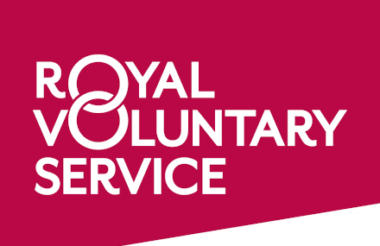People who volunteered during the pandemic fared better than those who did not, a new report found.
The Royal Voluntary Service (RVS) surveyed 2,500 UK adults in its Volunteering for a Healthier Britain report. It asked about the wellbeing, health, volunteering activity and social connectedness of people to understand whether it had been affected by the pandemic.
The report revealed that the pandemic negatively impacted the health of people living in the most deprived neighbourhoods. However, those who volunteered from the same areas fared significantly better, with improved mental health scores.
Its analysis found volunteering to be a “protective factor” which could be “a powerful tool to help address health inequalities”.
Volunteering as a ‘protective factor’
Across the study, volunteers scored higher on mental and physical health, wellbeing and social connectedness than non-volunteers.
One-fifth of volunteers felt their mental health was better after the pandemic compared to 11% of non-volunteers.
A quarter of volunteers felt their physical health was better compared to 15% of non-volunteers. 21% of volunteers felt their general wellbeing was better after the pandemic compared to 13% non-volunteers.
Some 15% of volunteers they had “gained confidence socialising with others” since the pandemic versus 6% non-volunteers.
RVS emphasised the reliability of its data by saying these results are not due to some of the sample being healthier or more affluent, as 33% had underlying health conditions and the volunteers lived across all geographic locations, from least to most deprived. Volunteering, it says, was the only common factor to explain the higher wellbeing scores.
The report argues that volunteering should be included in the government's levelling up agenda and recognised as a public health intervention. RVS believe its evidence proves that “volunteering could have a fundamental role to play in these communities and the government’s 'levelling up' agenda by increasing social capital, connecting communities and helping to reduce some of the inequalities exacerbated by the pandemic”.
Catherine Johnstone, chief executive of the Royal Voluntary Service, said: “Supporting social connections is at the heart of tackling health inequalities. Our new report makes clear the ways volunteering can improve wellbeing and our sense of belonging. Making volunteering a key part of the recovery will help us build back a fairer and healthier society. It is a driver for health and happiness which will in turn support economic productivity.”
Social disparity cause health inequalities
RVS’s study found that over a third (36%) of those in the most deprived areas have fewer people to call on for company.
Similarly, 34% of people living in the most deprived areas felt lonely, and were twice as likely as those living in wealthier areas to report their mental and physical health being worse than before the pandemic happened.
Despite living in the most deprived areas, 21% of those who volunteered felt their mental health was better after the pandemic compared to 13% of non-volunteers. 28% of volunteers in deprived areas also felt their physical heath was better versus 14% of non-volunteers in the same location.
Professor Kimberley Smith, senior lecturer in clinical health psychology at the University of Surrey, said: “The pandemic has revealed significant regional health disparities and exacerbated poor health with those in the poorest communities suffering disproportionately. Part of the solution in reversing these trends is capitalising on the resurgence of civic participation.”












